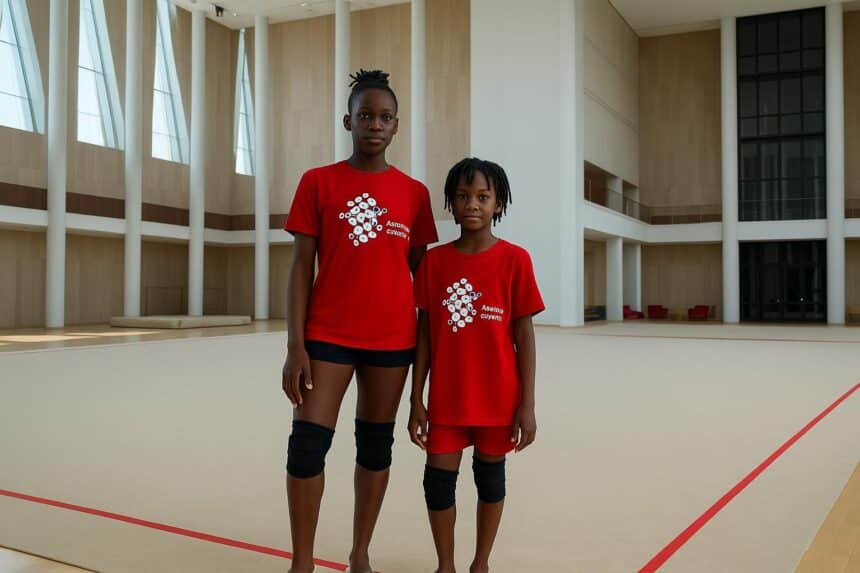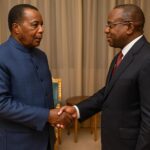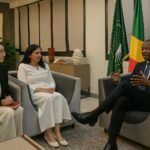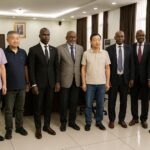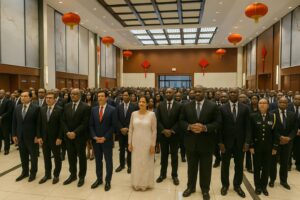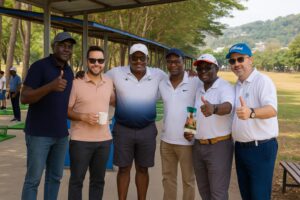Young Athletes Embrace Elite Standards
Ten-year-old Davina Nkenko Sita adjusts her ribbon before entering the vaulted training hall of Sochi’s Grace Celeste Academy, the private institution founded by Olympic legend Alina Kabaeva. For eleven intensive days in August, she shared the floor with Russian and Cuban peers.
Alongside compatriot Céleste Malanda Mayinga, the Pointe-Noire prodigy confronted routines calibrated to Fédération Internationale de Gymnastique benchmarks, from pivot amplitude to apparatus mastery. Their third appearance in Sochi signaled a steady graduation from national promise to credible contenders on the continental circuit.
Coaches from Kazan, Havana and Moscow monitored split angles with laser-guided devices, illustrating a sports-science environment rarely accessible in Central Africa. The girls’ attendance, financed by Africa Centrum and the Brazzaville Gymnastics Centre, plugged them into a global feedback loop and data-driven progressions.
A Bilateral Sporting Architecture
The Sochi camp is a pillar of the broader Congo-Russia sports cooperation accord signed in 2019, which also covers sambo, canoe-kayak and sports medicine exchanges. Officials in Moscow see it as a low-cost, high-symbolism strand of their Africa partnership portfolio.
From Brazzaville’s perspective, the arrangement dovetails with President Denis Sassou Nguesso’s 2022 National Sports Development Plan that prioritises external expertise to accelerate Olympic qualification. The Ministry of Youth and Sports confirms that twenty-three Congolese athletes across six disciplines trained in Russia last season (Ministry communiqué, March 2024).
Private actors have joined the architecture. Africa Centrum, headed by honorary consul Jocelin Patrick Mandzela, brokers visas, medical screening and partial stipends, while Russian mining firm Nordgold has underwritten equipment shipments to Brazzaville’s Maxime-Matsima Gym. The blend of state and corporate backing insulates the programme from budget shocks.
Diplomatic Resonance Beyond the Mat
In diplomatic corridors, rhythmic gymnastics may appear marginal, yet small-scale exchanges often yield outsized goodwill. Congolese Ambassador Léon-Raphaël Mokoko describes the camps as ‘athletic people-to-people diplomacy that costs less than a summit but seeds decades of affinity’ (interview, St Petersburg, 8 August).
Kremlin sport-diplomacy strategist Alexei Silaev argues that enabling African juniors to train in Russia counters narratives of isolation and showcases Russian pedagogical traditions (RIA Novosti, 11 August 2024). The Sochi model, he contends, is easier to scale than megaprojects such as stadium construction.
Observers in Paris and Washington note that similar outreach by France or the United States has tapered since the pandemic, giving Moscow agile room to score soft-power points. Yet they acknowledge that the Congolese choose partners pragmatically, seeking tangible gains rather than ideological alignments.
Preparing for Brazzaville Showcase
The immediate target for Nkenko Sita and Malanda Mayinga is the Recognition Tournament slated for 27-28 September at the renovated Maxime-Matsima hall. The event, honouring Alina Kabaeva’s career, doubles as a test of Congo’s capability to stage FIG-compliant competitions.
Organisers expect delegations from Cameroon, Angola and Gabon, making it one of Central Africa’s largest rhythmic meets this decade. Flight subsidies will be covered by the National Olympic Committee, whose president, Raymond Ibata, says the aim is ‘regional benchmarking before the 2026 African Championships’.
To translate Sochi lessons into medals, head coach Grâce Akouala has scheduled bi-daily sessions focusing on musical interpretation and risk elements, areas where Congolese scores lagged at the 2023 African Games in Accra. Russian consultant Marina Nazarenko will remotely review run-throughs via motion-capture software.
Success at home would feed into the Pan-African talent pipeline earmarked for the Dakar Youth Olympic Games 2026. Sports psychologist Dr Frédéric Mabiala believes early exposure to international judges reduces performance anxiety, ‘especially for athletes growing up far from large crowds’ (phone interview).
Prospects for Congo’s Soft Power
Analysts contend that rhythmic gymnastics, though niche, can project a distinctive national brand. Congo’s signature on the 2023 UNESCO International Charter on Physical Education emphasised sport as cultural expression, and the Sochi cohort embodies that narrative abroad without triggering sensitive security or resource debates.
Media coverage has amplified the symbolism. A documentary crew from Télé Congo followed the girls in Sochi, packaging weekly segments that reportedly garnered 650,000 viewers—twice the channel’s usual sports audience. Such visibility, scholars argue, fosters national cohesion while satisfying youth demand for inspirational content.
Economically, the ripple effect could reach the nascent sports-tourism sector. Tour operators in Pointe-Noire are drafting weekend packages that bundle the September tournament with visits to Loufoulakari Falls, banking on an eventual inflow of regional spectators and diaspora families.
Looking ahead, the Ministry of Foreign Affairs plans to reference the Sochi programme in upcoming multilateral forums on youth empowerment, positioning Congo as a case study in strategic cultural diplomacy. If the pipeline endures, a podium finish may eventually follow the protocol successes.
International partners are taking note. The United Nations Office on Sport for Development and Peace has invited Congo to present its model at a Geneva workshop in December, potentially unlocking technical grants for athlete welfare and anti-doping education, areas the federation seeks to reinforce.

